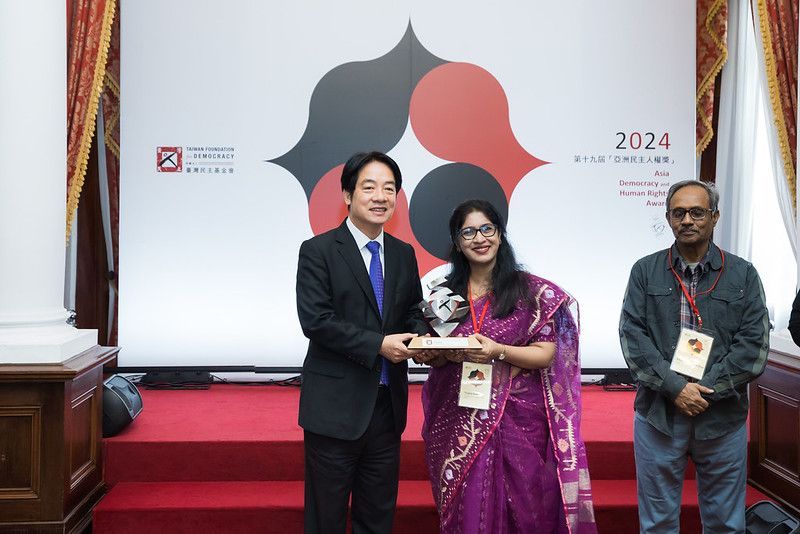President Lai presents human rights award to Odhikar
2024/12/12
President Lai Ching-te presented the 19th Asia Democracy and Human Rights Award to Odhikar Dec. 10 in Taipei City, praising the nongovernmental organization for its dedication to promoting human and political rights for the people of Bangladesh.
According to the president, Dhaka-based Odhikar has not only provided oversight and promoted accountability since its establishment in 1994, but also published an annual human rights report to bring unjust practices in the South Asian country to light.
Lai praised Odhikar staffers for courageously forging ahead in their work despite harassment, imprisonment and surveillance. The group’s indomitable spirit that leads them to fight valiantly for freedom and human rights is truly admirable, he added.
The president said like Bangladesh, Taiwan has experienced the suppression and coercion of authoritarian rule. Its people now enjoy a free and democratic way of life thanks to the dedication of many activists and defenders of human rights.
At a time when disinformation and cognitive warfare pose challenges to all democracies, Lai said Taiwan has sought to expand cooperation with partner countries to exchange strategies for countering such tactics through initiatives such as the Global Cooperation and Training Framework. The government will also continue to enhance its defense capabilities and expand cross-border collaboration to strengthen global democratic resilience, he added.
First presented by Taipei-based Taiwan Foundation for Democracy in 2006, the annual award honors individuals or groups that peacefully support democracy and human rights in Asia. Past recipients, who are given a grant of US$100,000 to continue their work, include India-based Rescue Foundation, global press freedom watchdog Reporters Without Borders and U.S.-headquartered Boat People SOS.
In related news, the Executive Yuan organized the 2024 Human Rights Day International Conference Dec. 9-10 in Taipei. The event featured one keynote speech, a general review session, and four panel discussions on human rights education, innovative evaluation approaches, global practices and transitional justice, and involved more than 400 public- and private-sector representatives from Australia, Europe and North America.
Source: Taiwan Today (https://taiwantoday.tw/index.php)












